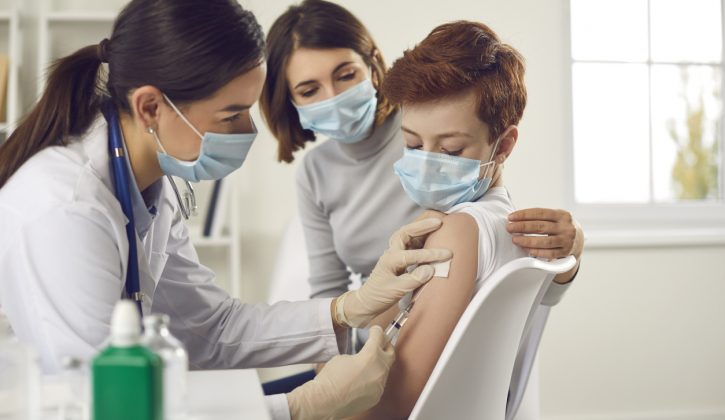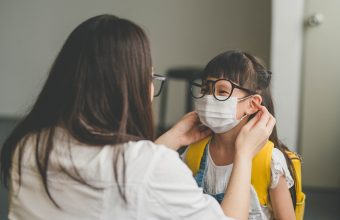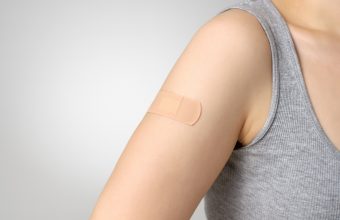You’ve probably seen the scary headlines by now. Some cases of myocarditis (which is an inflammation of the heart muscle) and pericarditis (which is inflammation of the lining of the heart) have been reported in teens and young adults who have received the Pfizer or Moderna Covid-19 vaccines.
What is the Risk of Myocarditis from Covid-19 Vaccines?
No cases have been directly linked to vaccinations in Canada. But international regulators, including the American CDC, have reported a definitive link between a small number of cases of myocarditis or pericarditis and vaccinations. This very rare side effect (that has occurred following 1200 cases out of a million second doses, according to the New York Times) is seen most often in young men and usually in the first few days following the second dose. As Canada administers more second doses in that age group, we can expect to see some cases here as well.
But don’t freak out…
It’s important to note that myocarditis and pericarditis are not side effects unique to these Covid vaccines. Dr. Sumon Chakrabarti, an Infectious Disease specialist in Ontario, explains, “This happens with other vaccines too. And, in fact, it happens with other viruses too, like influenza. The flu can cause myocarditis itself. So it’s one of those things that a lot of people are now just recognizing, but those of us who work in infectious disease have known for a while.”
What’s more, Dr. Theresa Tam, the Chief Public Health Officer of Canada, told me, “I was actually quite reassured” by the CDC’s report on myocarditis and pericarditis. Not only are these incidents extremely rare, for the most part, they’ve also been relatively mild cases that have resolved on their own. Tam continued, “Overall, individuals don’t need any major treatment and they will get better on their own. But there are treatments, of course, and anti-inflammatory medications can be provided. But they don’t get very sick, so that is reassuring.”
This is a different situation from the risks we’ve seen in the general population with the Astrazeneca vaccine, for example. In those cases, the side effects were rare but also very serious and sometimes fatal. With these few cases of myocarditis and pericarditis, we’re seeing a condition that requires medical attention certainly but is also entirely treatable.
So what should we do?
The National Advisory Committee on Immunization (NACI) states that while it continues to closely monitor this situation, the official guidelines have not changed. The official recommendation remains, for now, that everyone who is eligible for the vaccines should get both doses.
We know that the best protection against Covid-19, including the Delta variants, is to get two doses of approved vaccines to as many Canadians as possible, as soon as possible. Tam said she would like to see 80% or even more of Canadians fully vaccinated in order to stop Delta in its tracks. But in order to reach numbers like that, we need young people to get vaccinated too.
But the risk of pericarditis or myocarditis from Covid-19 vaccines is real and should be weighed against the benefit of the vaccine. Chakrabarti underscored the fact that teens are a group that “has literally almost no risk of severe outcome from Covid.” Couple that with the fact that vaccine uptake is on the rise in the community in general and that cases are down, and the Covid risk to an individual teen becomes very small. “So all of a sudden the small risk factor [of developing myocarditis or pericarditis] becomes important,” Chakrabarti said. Given that we have seen this small risk occur in males under the age of 25 after receiving their second dose, he actually recommends that people in that group hold off booking their second shot until we see if the recommendations from NACI change by the end of the summer. “The other thing to realize,” Chakrabarti said, “is that kids that are getting one dose of vaccine might have enough protection as it is.”
What should we know if our kids do get that second dose?
It is absolutely reasonable to heed Chakrabarti’s recommendation and delay that second dose. But there also good reasons for going ahead and getting it now. You might want to lock into that fully vaxxed status for peace of mind. You and your teen might want to do your part to stop Delta in its tracks. You may want to be able to travel out of the country to visit family without having to quarantine upon your return.
Tam tells young people and their parents what to be on the lookout for, “If you do get chest pain, you’re feeling unwell, you don’t know what’s going on, shortness of breath, sometimes your heart rate might be irregular. Under all those circumstances, please seek medical help.” Myocarditis and pericarditis were most commonly seen in the first week following the second shot of the Covid vaccine.
Can we do anything to decrease the risk any further?
My editor wondered if her athletic, adolescent son should take it easy for a few days after his second shot, for example. Tam said it couldn’t hurt, “I always say schedule your vaccinations when you can take some rest afterwards. I think that applies to everyone, including young people. Don’t schedule stuff that’s going to take a lot out of you for a few days after your second dose. Don’t think of yourself as invincible. Just watch and see if you get any symptoms, and then tell your parents and go see the doctor.”
But Chakrabarti warns that it probably won’t make a difference. “I know everyone wants to know, what can I do to help this? To be honest with you, if it’s going to happen, it’s going to happen. Right now we don’t have any clear way of predicting who it can happen to, apart from younger males.”
As parents, we have to make the decision that is right for our own family. Unfortunately, there’s not always a clear answer.
Tagged under: child vaccination,vaccine myths and facts,Covid vaccine,covid-19 vaccines,covid vaccines,covid vaccinations,myocarditis






